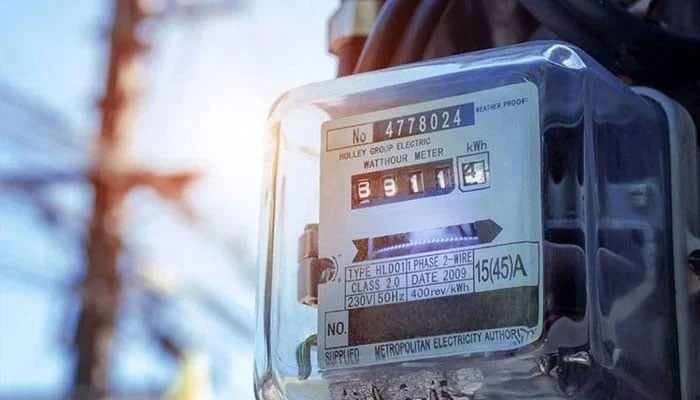Winter package not to produce required results: APTMA
If government wants meaningful results it should reduce electricity rates under the winter package
ISLAMABAD: The Winter Incentive Package (WIP) at Rs26.07 per unit on 25 per cent incremental use of electricity that the government has extended for three months of December, January and February will not yield the required results of increasing industrial activities and handling the monster of idle capacity for electricity generation.
If the government wants meaningful results, it should reduce electricity rates under the winter package to Rs 20 per unit from the proposed Rs 26.07 per unit. The government also needs to do away with the 25 per cent cap on incremental consumption of electricity to enable the package to achieve its envisaged goals and provide genuine relief to the industry.
This has been stated in a letter written on Monday (November 18) by the All Pakistan Textile Mills Association (Aptma) to Federal Minister for Power Awais Ahmed Khan Leghari. “While the Winter Incentive Package extended by the government for domestic, commercial and industrial consumers, applicable during December, January and February, is highly appreciable, the procedural framework and anticipated impact on industrial consumers raise significant concerns for the industry,” says the letter.
The Aptma drew the attention of the minister towards the proposed procedure made to enforce the Winter Incentive Package, saying that it was exceedingly complex and difficult for industrial consumers to comprehend and implement. The estimated savings for the industry under the package amount to only 5-6 per cent which is inadequate for meaningful rejuvenation, particularly when savings are capped at 25 per cent of incremental consummation over base units. Any additional consumption beyond this limit is to be charged at the existing Nepra tariff, effectively nullifying the intended relief and falling short of the government of Pakistan’s state objectives. More importantly, the textile industry has argued, the structure does not incentivize a substantial shift from other, more stable sources to grid electricity. Given the industry’s reliance on un-interrupted power supply and high likelihood of outages during foggy winter months, the package offers limited appeal to industrial consumers who operate 24/7. Additionally, these shortcomings may impede the government’s ability to achieve the revenue targets set under IMF guidelines and hinder any significant transition from gas-fired capacitive power generation to the national grid.
-
 TikTok's ByteDance To Develop Advance AI Chips With Samsung
TikTok's ByteDance To Develop Advance AI Chips With Samsung -
 Princess Beatrice, Eugenie In Dilemma As Andrew, Fergie Scandal Continues
Princess Beatrice, Eugenie In Dilemma As Andrew, Fergie Scandal Continues -
 Tumbler Ridge School Shooting Among Canada’s Deadliest — Here’s Where It Ranks
Tumbler Ridge School Shooting Among Canada’s Deadliest — Here’s Where It Ranks -
 Suspect Detained As Authorities Probe Nancy Guthrie’s Abduction
Suspect Detained As Authorities Probe Nancy Guthrie’s Abduction -
 Tumbler Ridge Tragedy: Nine Killed, 25 Injured After School Shooting In British Columbia
Tumbler Ridge Tragedy: Nine Killed, 25 Injured After School Shooting In British Columbia -
 FDA Sends 'refusal-to-file' To Moderna Over New Flu Vaccine
FDA Sends 'refusal-to-file' To Moderna Over New Flu Vaccine -
 Victor Wembanyama’s Historic First Half Tops Tim Duncan, Sparks Massive NBA Reactions
Victor Wembanyama’s Historic First Half Tops Tim Duncan, Sparks Massive NBA Reactions -
 'Heartbroken' Vanessa Hudgens Mourns Death Of Her 'sweet Girl'
'Heartbroken' Vanessa Hudgens Mourns Death Of Her 'sweet Girl' -
 Sarah Ferguson’s Loyalty To Andrew Gone With ‘free’ Home And Perks
Sarah Ferguson’s Loyalty To Andrew Gone With ‘free’ Home And Perks -
 Diplo Teases Collaboration With BTS On New Album 'ARIRANG'
Diplo Teases Collaboration With BTS On New Album 'ARIRANG' -
 Cure Flu With Theses Two Golden Foods
Cure Flu With Theses Two Golden Foods -
 King Charles Delayed Taking Firm Stance Against Andrew But William Pushed Action
King Charles Delayed Taking Firm Stance Against Andrew But William Pushed Action -
 Toronto Blue Jays Roster Faces Setback With Multiple Injury Concerns
Toronto Blue Jays Roster Faces Setback With Multiple Injury Concerns -
 Demi Lovato Leaves Fans Disappointed With Unexpected Announcement
Demi Lovato Leaves Fans Disappointed With Unexpected Announcement -
 Pacers Vs Knicks Overtime Thriller Ends In Heartbreak For New York
Pacers Vs Knicks Overtime Thriller Ends In Heartbreak For New York -
 Who Owns The Ambassador Bridge? New Report Links Owner Matthew Moroun To Trump’s Threat
Who Owns The Ambassador Bridge? New Report Links Owner Matthew Moroun To Trump’s Threat




